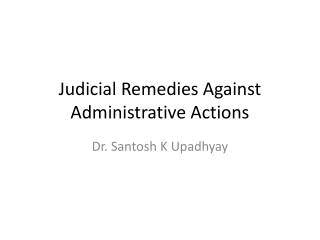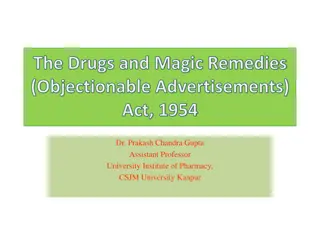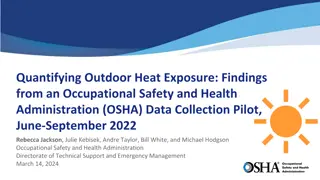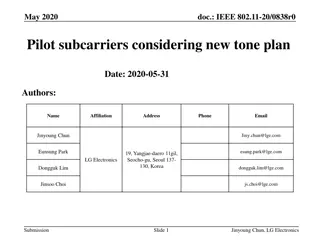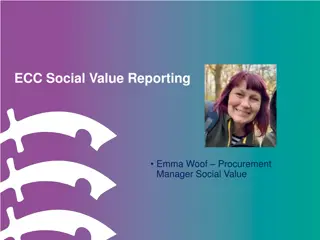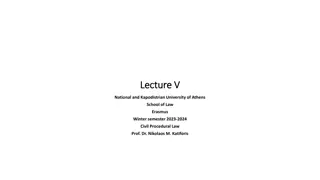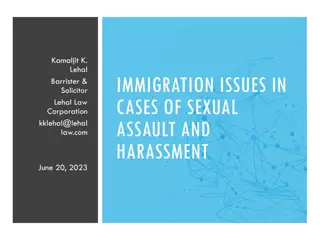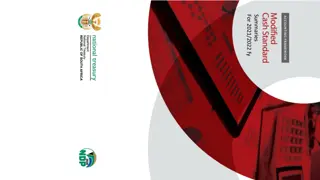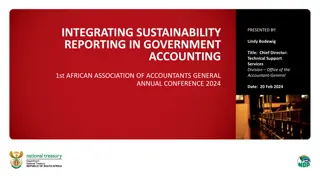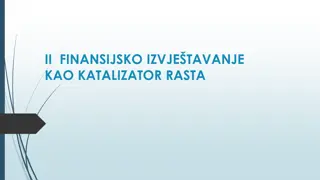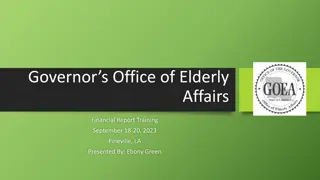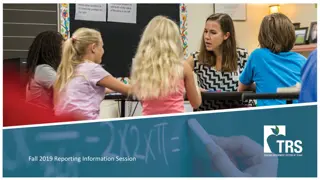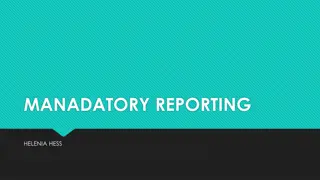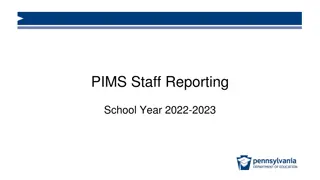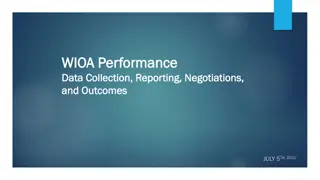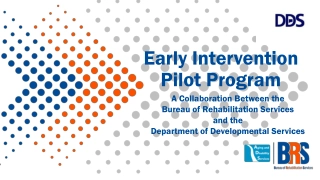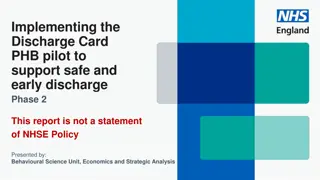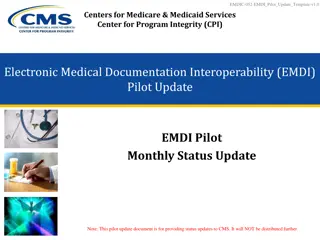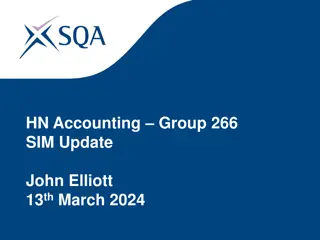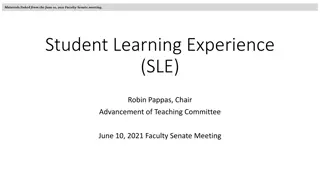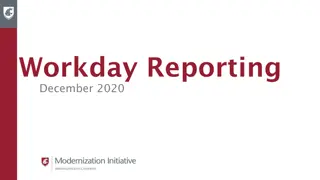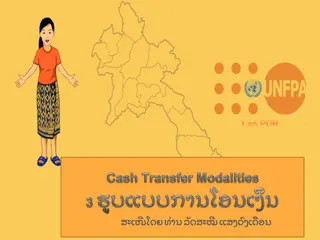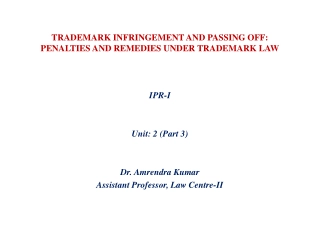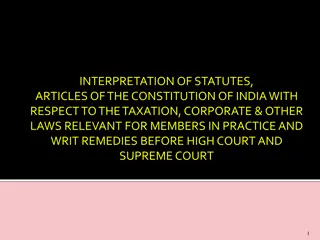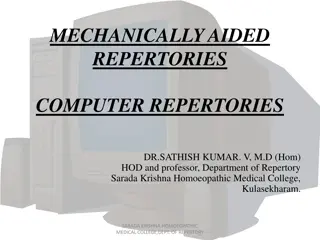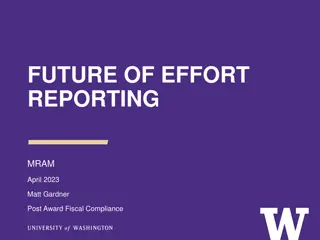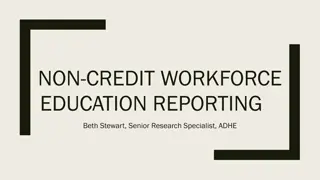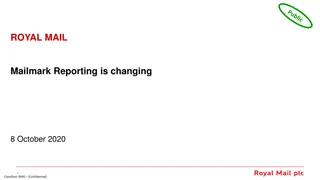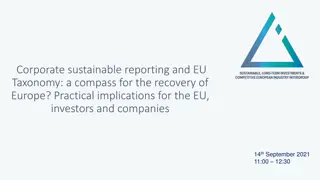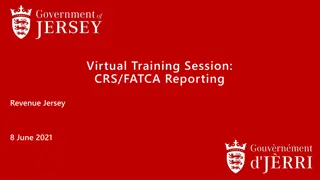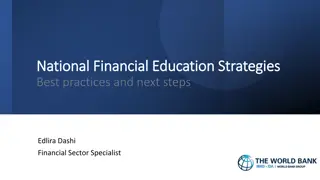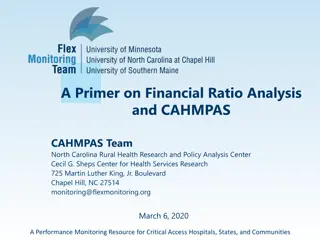Reporting Pilot Financial Remedies
Established practices of confidentiality in family financial remedy (FR) cases are being challenged by recent judicial opinions, suggesting a shift towards greater transparency. Exceptions to the general rule of non-reporting are identified, highlighting evolving attitudes towards media reporting and legal blogging in such cases. The Mostyn J. thesis questions the traditional approach to anonymity in judgments, advocating for a reevaluation of public interest considerations.
Download Presentation

Please find below an Image/Link to download the presentation.
The content on the website is provided AS IS for your information and personal use only. It may not be sold, licensed, or shared on other websites without obtaining consent from the author. Download presentation by click this link. If you encounter any issues during the download, it is possible that the publisher has removed the file from their server.
E N D
Presentation Transcript
REPORTING PILOT FINANCIAL REMEDIES December 2023 Peel J 1
The long-established practice For decades, the working assumption has been that FR cases are confidential. There are three basic foundations for this assumption: 1. By FPR 27.10, FR proceedings (along with almost every other category of family proceedings) will be held in private . 2. The implied undertaking of confidentiality explored by the Court of Appeal in Clibbery v Allen [2002] Fam 261 and Lykiardopulo v Lykiardopulo [2011] 1 FLR 1427. 3. The Judicial Proceedings (Regulation of Reports) Act 1926. 2
Media/legal bloggers attendance FPR 27.11 and PD27B permits the attendance of accredited media and authorised legal bloggers at hearings held in private (including FR) since 2009. Journalists require a press card. Legal bloggers are expected to produce ID and Form FP301 (or a letter from their appropriate institution) confirming that they are qualified lawyers attending for journalistic, educational or research purposes. The working assumption has been that the media/legal bloggers cannot report without permission of the court, and proceedings are confidential. 3
Exceptions to the usual rule of non-reporting There are exceptions to the general rule against reportability and confidentiality, per Tsvetkov v Khayrova [2023] EWFC 130 para 117: (i) Litigation misconduct; e.g. Lykiardopulo. (ii) Where anonymisation would be effectively impossible because of the prominence of e.g. the parties, as in McCartney v Mills McCartney [2008] 1 FLR 1508. (iii) Where material in the financial remedy proceedings is already in the public domain; Crowther v Crowther [2021] EWFC 88 (iv) Where one or both parties court publicity. 4
The Mostyn J thesis (1) Mostyn J has expressly stated in a series of cases that this long held practice is wrong and unlawful; BT v CU [2021] EWFC 87 A v M [2021] EWFC 89 Xanthopoulos v Rakshina [2022] EWFC 30 Gallagher v Gallagher [2022] EWFC 52 5
The Mostyn J thesis (2) The starting point is that the media/legal bloggers are entitled to report. Per Xanthopoulos v Rakshina [2022] EWFC 30 at para 128: The fallacy lying at the heart of current practice, which seems to be ingrained, is that the wrong question is invariably asked when it comes to anonymising a judgment The correct question is not: "Why is it in the public interest that the parties should be named?" but rather: "Why is it in the public interest that the parties should be anonymous?" 6
Events since the promulgation of these judgments Peel J and HHJ Hess (National Lead and Deputy Judges of the FRC) issued a Notice dated 13 May 2022 inviting any judge confronted with a transparency issue arising out of Xanthopoulos, to refer any such issue to Peel J for consideration. No referrals have been made. The practice of confidentiality and anonymity has continued in the High Court, save where one of the well recognised exceptions applies. 7
Re S The Intense Focus on the balancing exercise as between Articles 8 and 10: Re S [2004] UKHL 47 8
The Farquhar Group Report April 2023 (1) In January 2022 the Group was commissioned to consider transparency in FR proceedings within the overall Transparency Implementation Group In children s cases, a pilot has scheme has been running since January 2023 in Cardiff, Leeds and Carlisle. It is being expanded in January 2024. The essence is to permit the media/legal bloggers to publish an account of what takes place in court provided that anonymity and confidentiality are preserved 9
The Farquhar Group Report April 2023 (2) The Farquhar Group included judges, barristers, solicitors, and representatives of the media and legal bloggers. It received 585 consultation responses. It analysed the approach in 7 overseas jurisdictions. It considered the practice in Chancery, KBD and Court of Protection. The final report is 164 pages long. It includes recommendations as to the way forward, and a guidance note for professionals and judges. 10
The Farquhar Group Report April 2023 (3) The core recommendations: Media/legal bloggers should be permitted to report an account of what takes place in court provided that the anonymity of parties, and the confidentiality of their personal and financial information, is preserved. Thus, a reporter may publish information relating to the proceedings save for the following: i) The names and addresses of the parties (including any intervenors) and their children and any photographs of them; ii) The identity of any school attended by a child of the family; iii) The identity of the employers, the name of the business or the place of work of any of the parties; 11
The Farquhar Group Report April 2023 (4) Cont: iv) The address of any real property owned by the parties; v) The identity of any account or investment held by the parties; vi) The identity of any private company or partnership in which any party has an interest; vii) The name and address of any witness or of any other person referred to in the hearing save for an expert witness. 12
The Farquhar Group Report April 2023 (5) Judgments should similarly be anonymised. When attending court, the media/legal bloggers should be permitted to see the position statements of the parties and the ES1, but not ES2 When the media/legal bloggers attend a hearing, a standard Transparency Order should be made (similar to the practice in COP), subject always to variation by the court. In the High Court, cause lists should publish the names of the parties, so as to bring the High Court in line with all other courts around the country. The rubric on judgments, where the media/legal bloggers have attended, should be amended. 13
The way forward (1) The President has approved a 1-year pilot scheme, starting on 29 January 2024, encompassing the Central Family Court, Birmingham and Leeds. The Royal Courts of Justice is, in principle, to be added on 4 November 2024. Media/legal bloggers are expected to notify the court if they are proposing to attend. The court retains a discretion to permit attendance by a person who is other than a reporter; FPR 27.11(2)(b). The court also retains a discretion to exclude a reporter under 27.11(3), but this should only be done for specific reasons, and upon consideration of PD27B. 14
The way forward (2) In principle, reporters shall be entitled attend any hearing in person, where it is an attended hearing, and if the hearing is remote, the reporter shall be entitled to attend remotely. For reasons of logistics and court resources, where a hearing is attended in person by the parties, it may not always be feasible for the reporter to join remotely, and reporters should not assume that they will automatically be entitled to do so. The court should make a Transparency Order (see President s Guidance annexes) at the first hearing attended by the press/legal bloggers. 15
The way forward (3) In some cases, the court may decide to make an interim order preventing any reporting until the issue is considered at the end of the final hearing. Any Transparency Order needs to be served on the media/legal bloggers attending. An application can be made to vary/discharge the Transparency Order on notice. 16
The way forward (4) Media/legal bloggers should be provided by the parties with copies of position statements and the ES1 (redacted if necessary), but NOT the ES2. If the court delivers a judgment, a suggested rubric for those cases attended by the media/legal bloggers is in the Guidance annexes. NB the court at any time has the power, if it thinks fit, to depart from this guidance if thought appropriate and as may be consistent with the law. 17
Annex I of the Presidents Guidance contains practical points Reporters are allowed to attend, but check credentials Make sure they get the documents they are entitled to Reporters are not required to reveal sources Don t try and exercise editorial control Talk to the reporters and discuss issues Make the Transparency Order and send it out to the reporters 18
Other matters Staffing requirements. HELP/PHONE A FRIEND: if help is needed, please contact your local lead FRC lead judge in the first instance. FEEDBACK: in any case where media attend, please fill in a feedback form which will be available at your court, and send it to your lead judge, so that a record can be kept of the total number of such cases during the pilot. 19
THE END 20


